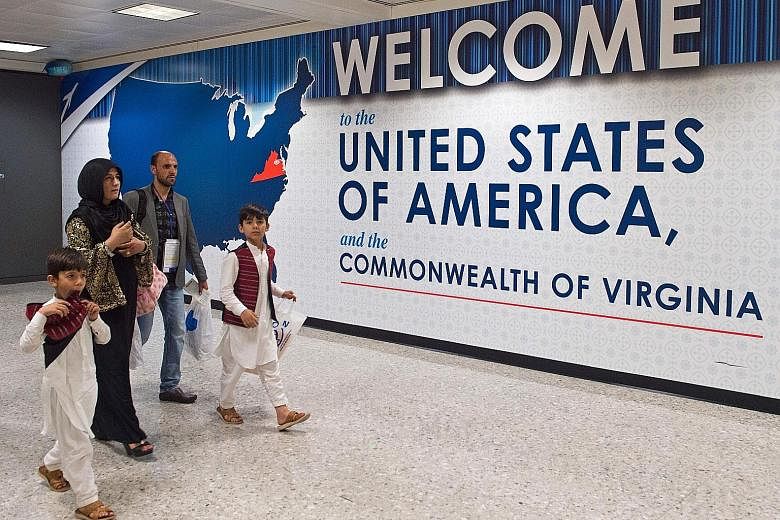WASHINGTON • The US State Department will require all nations to provide extensive data to help it vet visa applicants and determine whether a traveller poses a terrorist threat, according to a cable obtained by Reuters.
Countries that fail to comply with the new protocols or take steps to do so within 50 days could face travel sanctions.
The cable, sent to all United States diplomatic posts on Wednesday, is a summary of a worldwide review of vetting procedures that was required under President Donald Trump's revised March 6 executive order that banned US travel by most citizens from six Muslim-majority countries.
The memo lays out a series of standards the US will require of other countries, including that they issue, or have active plans to issue, electronic passports and regularly report lost and stolen passports to Interpol. It also directs nations to provide "any other identity information" requested by Washington for US visa applicants, including biometric or biographic details.
The cable sets out requirements for countries to provide data on individuals it knows or has grounds to believe are terrorists as well as criminal record information. Also, countries are asked not to block the transfer of information about US-bound travellers to the US government, and not to designate people for travel watchlists based solely on their political or religious beliefs.
"This is the first time that the US government is setting standards for the information that is required from all countries specifically in support of immigration and traveller vetting," the cable said.
Separately, a federal judge in Hawaii has ruled that grandparents and other relatives should be exempted from the enforcement of Mr Trump's travel ban.
US District Judge Derrick Watson ruled that the federal government's list of family relatives eligible to bypass the travel ban should be expanded to include grandparents, grandchildren, uncles, aunts and other relatives.
REUTERS, WASHINGTON POST

